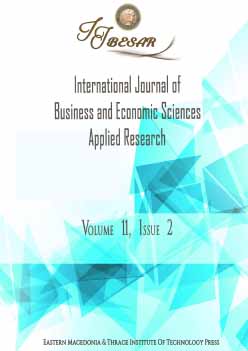Confronting Pharmaceutical Products Selection Criteria: A comparative survey of consumers in Greece, France and Bulgaria
Confronting Pharmaceutical Products Selection Criteria: A comparative survey of consumers in Greece, France and Bulgaria
Author(s): Maria Dimoula, Thomas Fotiadis, Dimitrios Folinas, Antonios GasteratosSubject(s): Economy, Psychology, Behaviorism, Marketing / Advertising
Published by: Τεχνολογικό Εκπαιδευτικό Ίδρυμα Ανατολικής Μακεδονίας και Θράκης
Keywords: pharmaceutical marketing; consumer profile; pharmaceutical preparations; pharmacies; behavioral motive;
Summary/Abstract: Purpose: The survey at hand explores the factors describing the consumers’ profile in the pharmaceutical markets of three European nations Design/methodology/approach: A primary research was carried out using questionnaires with a sample of citizens (pharmacy customers) in the capital of each nation and aiming to to determine the criteria motivating the customer/patient to purchase particular pharmaceutical preparations and the ultimate goal is to get an objective picture of the buying behavior of Greek, French and Bulgarian consumers Findings: Behavioral motives appear to be affected by health scientists, price, advertising, alternative available options and “public opinion”. Moreover, it appears that customers differ from one nation to the other but also between themselves, both with respect to their choices, as well as their special mode of action. Such individuality mainly results from the different levels of education and basic income of each pharmaceutical products consumer. Comparative study reveals that Frenchmen, Greeks and Bulgarians tend to agree in some common behavioral trends, yet substantially differ in issues of major importance. Research limitations/implications: Any research on the quantitative measurement of perceptions has inherent limitations as it rests on the subjective views and attitudes of the respondents. Additionally, some obstacles emerged in the course of the survey and in regard to the filling-out of the questionnaires in all three countries, thus account must be taken of the following limitations when interpreting the findings: (1) lack of detailed knowledge of the legislative framework for the supply of pharmaceutical products in Bulgaria and France; (2) rapid changes in external factors (legal-political-social) in the case of Greece; (3) inability of personal contact with every respondent in order to get a first-hand view of their “pharmaceutical behavior” and education, and (4) time and resources limitations dictated that the survey be carried out with respect to a very limited and small sample compared to the total population of Athens, Paris and Sofia. Originality/value: This research effort was motivated by former researches relating to the consumers of pharmaceutical products, the knowledge gap that was created with respect to this issue during the years of the financial and more general crisis and the continuous changes in the health system of Greece. The idea for a comparative survey then rested on the practical and substantial comparison of consumers from Greece and those from the two other nations. It was simultaneously reinforced by the fact that no other similar research effort (for Greece-France-Bulgaria) has been published in recent years.
Journal: International Journal of Business and Economic Sciences Applied Research (IJBESAR)
- Issue Year: 11/2018
- Issue No: 2
- Page Range: 23-35
- Page Count: 13
- Language: English

